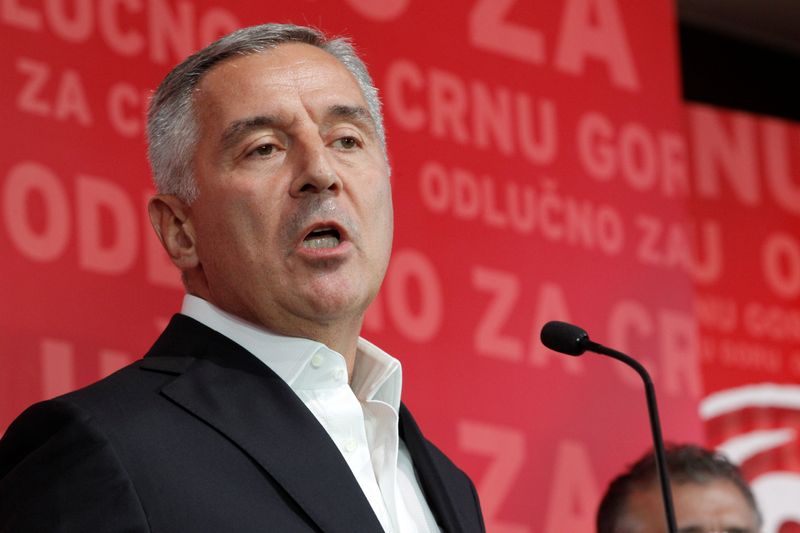By Fedja Grulovic
PODGORICA (Reuters) - President Milo Djukanovic's pro-Western ruling party suffered a major setback in Montenegro's parliamentary election, results showed on Monday, winning most votes but falling short of a majority and so requiring a coalition partner to stay in power.
The Democratic Party of Socialists (DPS), which has governed the tiny Adriatic republic for three decades, secured 35.06% of votes in Sunday's poll, the state election commission said, based on the completed preliminary vote count.
An alliance of mainly Serb nationalist parties named For the Future of Montenegro, which seeks closer ties with neighboring Serbia and with Russia, won 32.55% and a centrist grouping also opposed to the DPS, Peace is our Nation, got 12.53% of the vote.
The outcome is a disappointment for Djukanovic, who has steered Montenegro through the bloody collapse of Yugoslavia in the 1990s and the dissolution of a joint state with Serbia in 2006 and then took his country into NATO in 2017.
Trying to strike an upbeat note, Djukanovic told his supporters late on Sunday that the DPS, as the largest party, could secure 40 deputies in the 81-seat parliament with the help of smaller parties, but that is still one short of a majority.
"The regime has fallen," said the leader of the pro-Serb opposition alliance, Zdravko Krivokapic, told his supporters.
"A new day in free Montenegro has started," added Krivokapic, a university professor.
SERBIAN LINKS
Montenegrins who identify as Serbs account for about a third of the 620,000-strong population. Most Montenegrins and Serbs share a language and the Orthodox Christian faith, and many Serbian citizens have roots and families in Montenegro.
A pro-Serb government, if formed, might try to move the mountainous coastal nation closer to Serbia and Russia, but is not expected to take it out of NATO or abandon its bid to join the European Union.
Krivokapic's alliance is backed by the powerful Serbian Orthodox Church, which since December has held daily protests against a law that allows the state to seize religious assets whose historical ownership cannot be proven.
Djukanovic, who faces re-election as president in 2023, and his top associates have in turn accused Serbia and Russia of using the Church and the pro-Serb opposition to undermine the independence of Montenegro and its pro-Western orientation.
Opposition leaders and democracy and human rights watchdogs have long accused Djukanovic and his party of running Montenegro as their own corrupt fiefdom with links to organized crime. The DPS denies the charges.
"Montenegro deserves to be run by a government of experts," said Dritan Abazovic, leader of the green United Reform Action (URA) party, which received 5.53% in Sunday's election.
Any future government must tackle an economic downturn that started in 2019 and was aggravated by the coronavirus pandemic, which gutted tourism revenues, a key driver of the economy.

The International Monetary Fund expects Montenegro's economy to contract by nearly 9% this year.